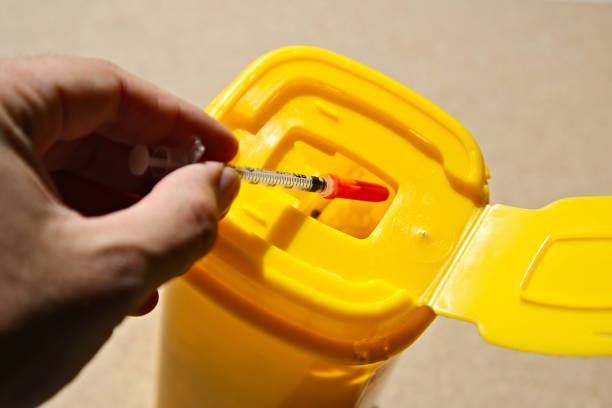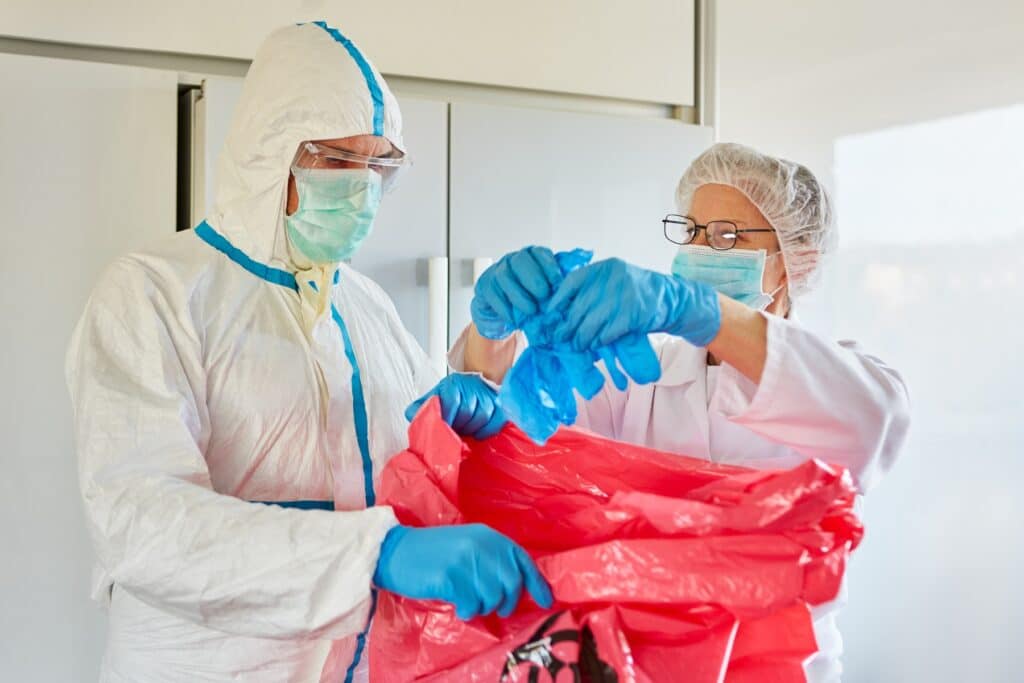
New York Medical Waste Disposal: What You Need to Know
Introduction
Medical waste disposal is a critical aspect of healthcare facilities, and it plays a significant role in maintaining the health and safety of patients, staff, and the environment. In New York, medical waste disposal regulations are stringent, requiring healthcare providers to adhere to specific guidelines to ensure proper handling and disposal of medical waste.

Proper medical waste disposal involves more than simply throwing away used syringes or contaminated materials. It requires comprehensive knowledge of regulations, compliance measures, and best practices to minimize the risk of contamination and protect public health.
In this article, we will explore the ins and outs of New York medical waste disposal. From understanding the importance of compliance to finding the best waste management service in NY, we will cover everything you need to know about safely disposing of medical waste in New York.
Table of Contents
- Ensuring Public Health and Safety
- Preventing Environmental Contamination
- Compliance with Federal and State Laws
- Identification and Segregation of Medical Waste
- Sharps Waste
- Infectious Waste
- Pathological Waste
- Packaging and Labeling Requirements
- Transportation and Manifesting Procedures
- Factors to Consider When Choosing a Service Provider
- Proper Handling and Disposal of Hazardous Materials
- Safe Handling and Disposal Practices for Pharmaceuticals
- Assistance with Regulatory Compliance
- FAQ 1: What qualifies as medical waste in New York?
- FAQ 2: How often should medical waste be disposed of?
- FAQ 3: Can medical waste be recycled?
- FAQ 4: Are there penalties for non-compliance with medical waste disposal regulations?
- FAQ 5: How can healthcare facilities ensure compliance with medical waste disposal regulations?
- FAQ 6: Do small healthcare facilities have different requirements for medical waste disposal?
New York Medical Waste Disposal: What You Need to Know
When it comes to New York medical waste disposal, it is crucial to have a comprehensive understanding of the regulations and best practices. Healthcare facilities generate various types of medical waste that require proper handling and disposal to prevent the spread of infections and protect public health.
Frequently Asked Questions (FAQs)
FAQ 1: What qualifies as medical waste in New York?
In New York, medical waste includes any solid or liquid waste generated during patient care, research, or laboratory testing that contains potentially infectious materials. This can include items such as used syringes, gloves, bandages, cultures, and pathological specimens.
FAQ 2: How often should medical waste be disposed of?
Medical waste should be disposed of regularly to prevent accumulation and minimize the risk of contamination. The frequency of disposal depends on the volume of waste generated by the healthcare facility. It is essential to consult with a reputable waste management service provider to determine the appropriate disposal schedule.
FAQ 3: Can medical waste be recycled?
Certain types of medical waste can be recycled if they meet specific criteria outlined by regulatory authorities. However, recycling options may vary depending on the type of waste and local regulations. It is important to consult with a professional waste management service provider for guidance on recycling options for medical waste.
FAQ 4: Are there penalties for non-compliance with medical waste disposal regulations?
Yes, there are penalties for non-compliance with medical waste disposal regulations in New York. Failure to adhere to proper disposal guidelines can result in fines, legal consequences, and reputational damage for healthcare facilities. It is crucial to prioritize compliance to avoid these potential repercussions.
FAQ 5: How can healthcare facilities ensure compliance with medical waste disposal regulations?
Healthcare facilities can ensure compliance with medical waste disposal regulations by implementing comprehensive training programs for staff, maintaining accurate records of waste generation and disposal, and partnering with reputable waste management service providers that specialize in medical 77 Spruce St Suite 204, Cedarhurst, NY 11516, United States waste disposal.

FAQ 6: Do small healthcare facilities have different requirements for medical waste disposal?
While the regulations may be similar for both small and large healthcare facilities, there may be some variations in the volume of waste generated and the specific requirements for disposal. It is important for small healthcare facilities to consult with regulatory authorities or professional waste management service providers to ensure compliance with applicable guidelines.
Conclusion
Proper New York medical waste disposal is essential for maintaining public health and safety. Healthcare facilities must adhere to strict regulations and best practices to minimize the risk of contamination and environmental harm. By understanding the importance of compliance, identifying different types of medical waste, and partnering with a reliable waste management service provider, healthcare facilities can ensure they are safely disposing of medical waste in accordance with New York state laws.